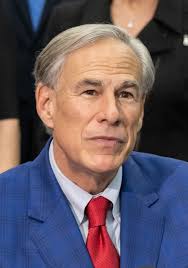
Introduction
Greg Abbott, the 48th Governor of Texas, has been a pivotal figure in American politics since his inauguration in January 2015. His tenure has been marked by contentious debates over public policy, economic strategy, and social issues. Abbott’s leadership style and decisions have not only shaped the state of Texas but also influenced national discussions on governance. Understanding his policies and their impact is crucial, especially as Texas continues to be a significant player in U.S. politics.
Key Policies and Initiatives
Since taking office, Abbott has implemented various significant policies across several domains:
- Economic Development: Abbott has focused on job creation and attracting businesses to Texas. His administration has promoted policies favorable to entrepreneurs, leading to a burgeoning economic climate in the state. From tax incentives to business-friendly regulations, Abbott’s strategies aim to enhance Texas’s reputation as an economic powerhouse.
- Healthcare: Under Abbott, Texas has faced challenges in healthcare, especially during the COVID-19 pandemic. His administration has prioritized vaccine distribution and public health guidelines, albeit with varying responses from local leaders. Abbott’s decisions regarding pandemic management have sparked significant debate across political lines.
- Education Reform: Abbott has advocated for education reforms that include increased funding for public schools and the promotion of school choice. He has pushed for policies permitting charter schools to flourish, while also addressing teacher pay and educational resources.
- Gun Laws: A staunch advocate for Second Amendment rights, Abbott signed legislation allowing permitless carry of handguns in Texas. This controversial decision reflects his commitment to gun rights, but has drawn criticism in light of safety concerns amidst rising gun violence.
Controversial Decisions and Responses
Abbott’s administration has not been without controversy. His handling of immigration and border security has elicited mixed reactions from constituents. The creation of a Texas-Mexico border wall and the deployment of state resources to address illegal immigration reflect his hardline stance. Critics argue these measures have been ineffective and costly, prompting protests from immigrant advocacy groups.
Additionally, Abbott’s decisions regarding abortion laws have placed Texas in the national spotlight. The enactment of restrictive abortion laws in the state led to legal challenges and sparked nationwide protests, raising questions about women’s rights and health care access.
Conclusion
Greg Abbott continues to be a significant figure in modern Texas politics, with a record that reflects both staunch conservatism and commitment to state economic growth. As Texas grapples with various challenges and opportunities, Abbott’s leadership will play a crucial role in shaping the future of the state. Observers of Texas politics should closely monitor Abbott’s strategies and their long-term implications as they reflect broader trends in American governance.



